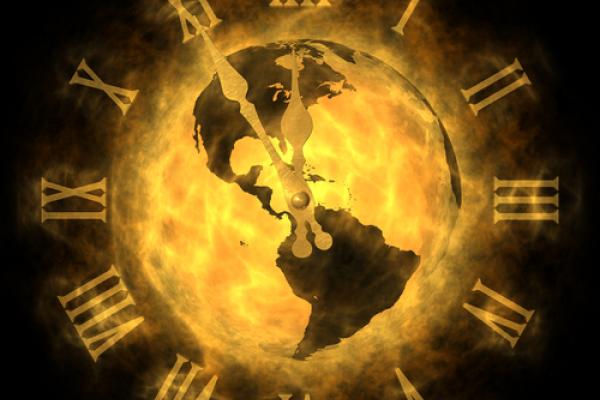A RECENT RETREAT of evangelical environmentalists raised this theological question: Should we have expected most people in the developed world to hear the scientific evidence proving the great dangers of climate change and then decide to quickly change themselves—their view of the world, their lifestyles and politics—and to withdraw their support from the fossil fuel economy that is threatening the planet and its people?
Those of us gathered at the retreat didn't think so. We human beings just aren't that smart, wise, good, or unselfish. It's more human to deny the evidence, attack the messengers, delay the response, and just hope everything works out. That's what many have done. And since our political system is even more dysfunctional than most of the people it represents—and is bought and paid for by the gas and oil interests that control the economy—the chances are low for courageous and far-sighted leadership.
So what kind of wake-up call will it take to reduce the carbon emissions we humans create, which are warming the earth's temperature and endangering our future in increasingly dramatic ways? Perhaps it will take disruption and devastation—which is becoming the "new normal." So-called once-in-a-lifetime storms are now becoming frequent, with Superstorm Sandy only the most recent example.
Sandy seemed to get people's attention in a way we haven't seen since the 2010 BP oil spill in the Gulf. It came in a year when the lower 48 states suffered the warmest temperatures and most disruptive weather patterns since such records have been kept. We're already spending billions in emergency aid for the victims of hurricanes and weather disasters; those numbers will only increase. In addition to Sandy, we had 10 other billion-dollar weather disasters in 2012, including Hurricane Isaac and terrible tornadoes across the Midwest and Great Plains.
Read the Full Article

